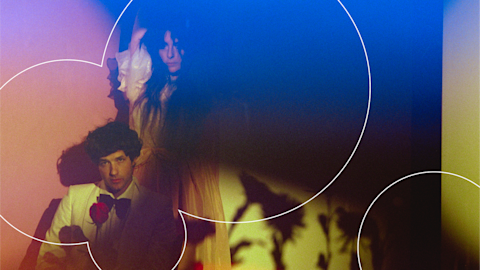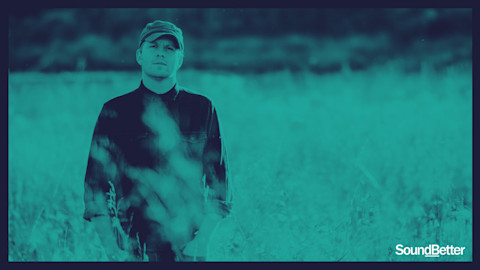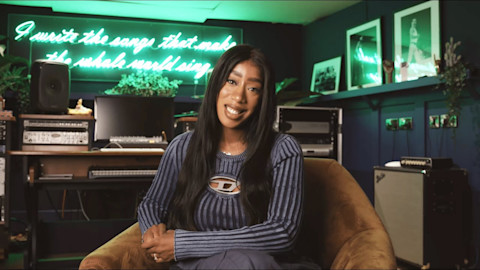In this ongoing series, we take a closer look inside some of the many labels carving their own niche.
Depending on your perspective, Matador Records is either the biggest indie label in the U.S., or the smallest, scrappiest major operation. In the early ’90s, the New York-based imprint was at the forefront of an American indie-rock uprising that yielded genre-defining releases by Pavement, Yo La Tengo, Liz Phair, and Guided By Voices. And now, 30 years after its first release, Matador remains a reliable launchpad for the underground’s most vital young voices, from singer/songwriter Lindsey Jordan (aka Snail Mail) to industrial gospel-punk insurrectionists Algiers. But its roster is also home to bands who’ve headlined Madison Square Garden (Interpol, Spoon) and who routinely occupy the upper reaches of the Billboard album charts (Queens of the Stone Age).
“One of the things we've always tried to do is reach as high as we can go, but without compromising the artists we want to work with,” says Chris Lombardi, who founded Matador in 1989 and brought partner Gerard Cosloy on board shortly thereafter. “We want our bands’ music to appeal to as many people as possible, but we don't want [the bands] to change who they are.” Matador’s chief toreros talked to us about how they’ve maintained that delicate balance of indie cred and mainstream ambition for three decades.
The early years
At the time of Matador’s inception, Cosloy and Lombardi were already seasoned players in the American indie underground. As a teen growing up in the Boston area, Cosloy produced notorious hardcore zine Conflict and went on to run the highly influential New York label Homestead Records in the mid-’80s; Lombardi worked for Homestead’s distributor, Dutch East India Trading. The two became carpool buddies. Their goal at the outset of Matador was simple: to release records no one else would, by weirdo local acts like HP Zinker, Railroad Jerk, and Dustdevils.
“There was a real sense on our part that if we didn't document certain projects, they simply weren't going to exist,” Cosloy says. “We’re in a different world now—there are myriad ways for an underground project to come to fruition that don't necessarily need the backing of a Matador Records. But back then, if these things weren't pressed to vinyl or made on CD, they simply weren’t going to be heard.”
![Chris Lombardi Photo Courtesy of Matador Records]()
Chris Lombardi Photo Courtesy of Matador Records
As their ranks expanded to include indie buzz bands like Superchunk, Teenage Fanclub, and Pavement, Matador became known not only for a certain style of melodic discord but also for its cheeky sense of humor. In lieu of a traditional newsletter, Matador produced ¡Escandalo!, a monthly zine packed with unconventional artist interviews and other satirical features. That sensibility extended to classic music videos, like Yo La Tengo’s “Sugarcube” clip, in which the cast of HBO sketch-comedy series Mr. Show leads the bumbling Hoboken trio through a rock-school boot camp that includes lessons in hotel-room trashing and Rush-lyric recitals. And with artists like the Jon Spencer Blues Explosion dropping shout-outs to Cosloy in their songs, the ’90s Matador roster had the feel of a tight-knit clubhouse stuffed with smart and snarky characters.
“People have different ways of discovering music now,” Cosloy observes, “I would be fibbing if I told you I didn't miss some of the stuff that we did way back in the day in terms of some of the press releases we used to do, the stuff that we used to do with the newsletter, and some of the videos we used to make. But our task today is to represent the artists the way they want to be represented, and not necessarily to force our personal aesthetic at their expense.”
![Gerard Cosloy Photo Courtesy of Matador Records]()
Gerard Cosloy Photo Courtesy of Matador Records
Bring on the major leagues
By the mid-’90s, Matador was no longer a purely independent operation: After a three-year partnership with Atlantic Records, Lombardi and Cosloy sold a 49 percent stake in the company to Capitol Records in 1996, only to buy it back in 1999. Though those dalliances with major labels were ultimately short-lived, Matador never lost sight of its mainstream-breaching ambitions. Since joining the Beggars Group in 2002, Matador has nurtured the rise of marquee indie acts like Interpol, facilitated Cat Power’s transition from enigmatic outsider to celebrity chanteuse, served as the stateside base for mega-hyped imports including Dizzee Rascal, and acquired major-label exiles like Queens of the Stone Age.
![Interpol Photo Courtesy of Red Light Management]()
Interpol Photo Courtesy of Red Light Management
“We're kind of an overground label and an underground label at the same time,” Cosloy observes. “And if somebody would say that it's disingenuous for us to call ourselves an underground label, that's fair enough—I could live with that criticism. We're definitely much more about helping bands build careers now than we are in documenting underground music. I think there are smaller labels who are doing a better job of that right now than we are. We're trying to work with artists who we believe have the ability to change people's lives—somebody who five, ten, fifteen years from now is still going to be making really, really killer music.”
“But I feel like we’ve always stuck to our guns,” Lombardi says. “Our tastes change and morph and there's new things we discover all the time, but in general, we're the same dudes who've been there since day one.”
“Clearly, we have not been right every time,” Cosloy adds. “But I think we've been right enough times that we're not completely out of our minds!”
The new school
While the Matador of today is still very much guided by Lombardi and Cosloy’s curatorial vision and finely tuned b.s. detectors, the label—like every other music-industry entity in 2019—has had to make significant strategic adjustments in the digital age. “Early on, we were definitely learning things based purely on instinct and feel—which was certainly exciting and fun, but not always well advised,” Cosloy says. “There was a moment of reckoning—and opinions may differ whether it was 2005 or 2009 or 2015—where we learned that, although we had the freedom to put out whatever we wanted to, maybe it wasn't advisable to put out everything we wanted to.”
For Matador, that’s meant devoting greater attention and resources to a more limited pool of artists. Twenty years ago, it was not uncommon for the label to have 60-plus releases across all formats; in 2019, that number was closer to 10. “We have become super-choosy about who we work with,” Lombardi admits. “Back in the late ’90s and early 2000s, we were putting out a couple records a month. Now things have changed, and there's a lot of finessing that's required to promote records. There are so many different outlets—and less-traditional outlets—that it's a lot more complicated to bring awareness to new releases than it used to be.”
Though Cosloy and Lombardi’s ultimate litmus test for new signings is the artists' onstage skills, Matador’s more recent roster additions piqued the label’s interest as much for their extramusical promotional smarts as their songwriting talents. The duo point to Will Toledo—a.k.a. Car Seat Headrest—as an example of an artist who had cultivated a loyal online community that Matador could use as a springboard to expedite his move from the house-show circuit to major festival stages.
![Car Seat Headrest Photo Courtesy of Matador Records]()
Car Seat Headrest Photo Courtesy of Matador Records
“We learned about Car Seat Headrest after he'd already released ten albums online and he had a following,” Lombardi says. “But it existed in this entirely alternate ecosystem that we weren't a part of. So to learn about that, and then partner with him to bring his music aboveground to the community we converse with daily, was an exciting transition.”
Cosloy adds, “I would say that one of the biggest differences between the current era and thirty years ago is that some of the younger acts we've worked with recently—like Will and Lindsey and Julien Baker and Lucy Dacus—have such a very defined notion of who they are, how they want to be presented, and how they want the records to sound. Just in terms of really, really having their shit together, and knowing the rudiments of music-business presentation 101, it's really quite shocking. When I compare it to some of the stuff that we went through like twenty-five years ago with bands, it's like night and day.”
So it’s safe to say that, unlike Yo La Tengo back in the day, Matador’s current bumper crop of artists requires no formal rock-school training.
Says Cosloy: “Some of them could send us to rock school.”
—Stuart Berman










